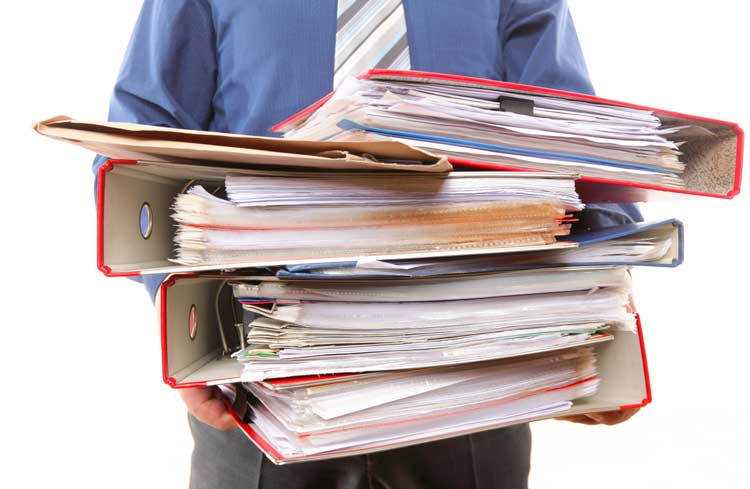-
What Do You Do With Paper After You Digitize Documents, What to Keep What to Toss?
You’ve heard about how great digitizing your documents can be. Digital files are easier to search and access, take up less space, and are more secure. But what about all the paper files that digitization leaves behind?
One of the main reasons to digitize paper files it so you can cut back on how much storage space they’re taking up. But you won’t want to get rid of all your files. There are some types of paper files that you should keep forever, others that you need to hang onto for several years, and others that you can shred right away. Knowing the difference is key to handling your files — both digital and paper — in the best way for your business.

Files You Should Keep Forever
There are certain types of paper files that you should never get rid of. You can digitize them, but the digital copy is just a back-up. It’s the original file that’s more important. Files that you need to keep include government and legal documents that are vital to your business. Industry or company standards may also specify which documents to keep. Examples of documents you should never destroy include:
- Contracts & legal agreements
- Certificates or articles of Incorporation
- Business licenses and permits
- Year-end financial statements
- Capital stock and bond records
- Employment tax records
Files To Keep For A Few Years
For some files, it’s important to have paper documents on-hand for a certain number of years. If there’s a problem with anything having to do with these records, you’ll want to have them on hand. Paper records are very important if there’s a lawsuit, claim, or tax audit to deal with. Examples of files to keep for a certain number of years include:
- Job applicant information (three years)
- Expired insurance policies (four years)
- Bank statements (seven years)
- All tax documents (seven years)
- Former employee files (seven years)
- Accounting services records (seven years)
- Work-related accidents/employee claims (ten years)
Files You Don’t Need To Keep On Paper
You can get rid of some paper files right after you digitize them. It’s good to have record of them, but the digital record is good enough. You won’t need paper backups. Examples of this type of file include:
- Bank withdrawal and deposit slips
- Credit card receipts
- Bank statements
- Client records
- Purchase orders
- Invoices
How To Handle Your Paper Files
For documents that you’re keeping, make sure they’re stored in a safe location. Most scanning vendors will give you the option of storing your documents offsite if you need the extra space. If you’re storing on-site, make sure you come up with a good filing system that lets you find the documents as-needed.
The best thing to do with files that you no longer need is to shred them. Don’t just throw them out intact. They have too much important business information on them for that. You’ll either need to shred them yourself or hire a third-party to dispose of the documents for you. If you’re outsourcing your document digitization, the same company can often shred the files for you.
NextProcess’ Business Process Outsourcing services include both document imaging services and electronic storage. We can also help you deal with your paper files. Contact us today to learn more.